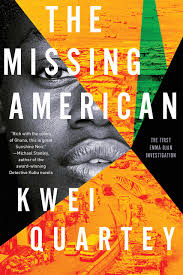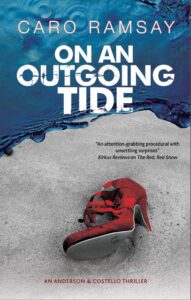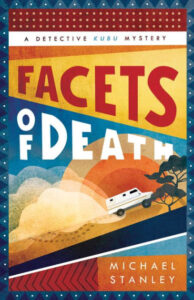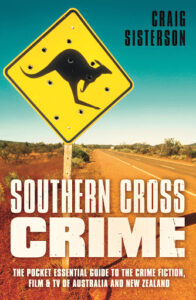Imagine an idyllic, sunny Greek island surrounded by a deep blue-green Aegean sea, bordered in long sandy beaches, filled with vast fertile plains, sporting a backbone of rugged green mountains, and peppered everywhere with villages, towns and ruins running back to antiquity. All that, plus terrific locally raised food, warm and welcoming people, reasonable prices, and a history predating Minoan Crete and Mycenaean Greece.
Question: Would you like to visit?
Answer: Who wouldn’t?
I think it’s safe to say that in response to observing that brief Q&A a famous Danish Prince would say, “There’s the rub.”
Of course, dear Hamlet is right, because it is within the irresistible lure of such magical places to the imaginations of billions of potential tourists that lie the seeds of a venue’s doom.
The Greek island I describe actually exists. It is Naxos, the largest and greenest island in the Cyclades and the setting for my eleventh Chief Inspector Andreas Kaldis Greece-based mystery thriller, A Deadly Twist. Naxos presents a many faceted setting for a mystery thriller. It is filled with scores of villages deeply proud of their individual histories, and a population forced to confront how best to preserve its past in balance with the demands of a tourism industry hungry to capitalize on the beauty of Naxos’ landscape and seductive magic of its ways.
On top of all that, Naxos is no stranger to hosting environmental battles. In the 1990s, talk of expanding the Naxos airport to accommodate bigger planes, led twenty-three communities to come out publicly against it and end the discussion. In 2007, that earlier success motivated thirty-three Naxos citizens to launch a lawsuit against the town’s plan to expand its port by seventeen acres in order to accommodate five behemoth cruise ships.
Around the world, cruise ships bearing thousands of passengers and nearly equivalent numbers of staff are regarded as the boom and bane of communities that once feared only pirates and conquerors descending on them from the sea.
Participants in the Case of the 33, as the Naxos lawsuit came to be called, and their supporters were vilified for opposing the plan. Threats of physical harm were reportedly made, Curse the 33 appeared emblazoned on signs at rallies and in graffiti, and boycotts were called against businesses tied to the 33. The more overtly threatening tactics largely subsided once the media in Athens got word of what was happening and turned the situation into an embarrassment for the island. The objectors won their lawsuit in 2008, but even today, pockets of resentment remain and some still boycott the original 33.
Realistically, as encouraging as isolated successes may be to some, they will not deter tourists from searching out the world’s draws; and no matter how the visitors arrive, fields of lavender, pebbled beaches, ancient sites, and wildlife refuges are at risk to those looking for the perfect selfie or––worse still—a souvenir pebble, flower, or bit of an artifact “no one will ever miss.” And I’m not even talking about the littering or defacing tourist.
But what of those who live and work in such places? Are they not as entitled to better their lives through the natural gifts bestowed upon their communities as are those locales blessed with forests to harvest, marble to quarry, minerals to mine, or water for planting?
There are some who see a future in ecotourism, where respect for place and its preservation is what draws the visitor. As admirable as its goals, even ecotourism has its critics for attracting boots to the most remote and fragile of environments.
To me it is all a matter of finding balance in sensible planning, sensible preservation, and sensible progress. And in that context, it’s important to keep in mind the cautionary words of Voltaire. “Perfect is the enemy of good.”
If you wonder why all of this environmental back and forth might matter to a mystery writer, from my experience, when big money and deep passions are at play, it’s the perfect combination for intrigue, corruption, mystery, and murder.
All of that plays a part in A Deadly Twist, but I’ve also written a trilogy on the subject, spread out over a dozen years, focusing on my home island of Mykonos. My first book in the Kaldis series, Murder in Mykonos, explores an island still somewhat embracing its old ways. In book #5, Mykonos After Midnight, the island confronts whether or not to strike a balance between preservation and profit. And in book #10, The Mykonos Mob (Island of Secrets in paperback), I explore the island’s fate at having opted to become one of the best known and priciest tourist goldmines in the world.
But enough about my work. Here’s a selection of books I’m honored to suggest to you, written by an array of internationally acclaimed mystery-thriller authors who not only base their work in international locales, but share my belief that location plays a crucial role in telling a story.

The Missing American, Kwei Quartey
This 2021 Edgar Best Novel nominee introduces Accra (Ghana) private investigator Emma Djan in a missing persons case that leads her to the darkest depths of email scams and fetish priests.

The Widows of Malabar Hill, Sujata Massey
Set in 1921 Bombay, it goes behind the veil of women’s lives as lawyer Perveen Mistry seeks justice for her clients and herself.

Bones in the River, Zoë Sharp
Book two in the CSI Grace McColl and Detective Nick Weston series, set in the English Lake District. Tensions run high between locals and incomers when a young boy disappears at the start of the annual Appleby Horse Fair, the largest gathering of Gypsies and Travellers in Europe.

The Blasphemers, Annamaria Alfieri
Out of Africa meets Agatha Christie in this atmospheric mystery that combines the beauty of the African wilderness with the perils of imposing a foreign culture on indigenous people.

Three Hours in Paris, Cara Black
This nineteenth historical thriller in the Parisian Aimée Leduc Investigation series takes you back to 1940 occupied Paris.

Ghost of the Bamboo Road, Susan Spann
When a vengeful spirit begins terrorizing a mountain village, master ninja Hiro Hattori and Portuguese Jesuit Father Mateo must save the villagers from the phantom’s wrath in this medieval Japanese mystery.

On an Outgoing Tide, Caro Ramsay
Two murders, forty years apart. What links them? Glasgow Detectives Anderson & Costello undertake their most baffling investigation to date.

Facets of Death, Michael Stanley
Botswana detective Kubu’s first case is a massive diamond heist, with one murder following another until even the robbers are assassinated, and Kubu fears his career may be over before it’s even properly begun.

Southern Cross Crime, Craig Sisterson
An eye-opening readers’ guide to Australian and New Zealand crime fiction, film, and television showcasing more than 250 storytellers.
***


















